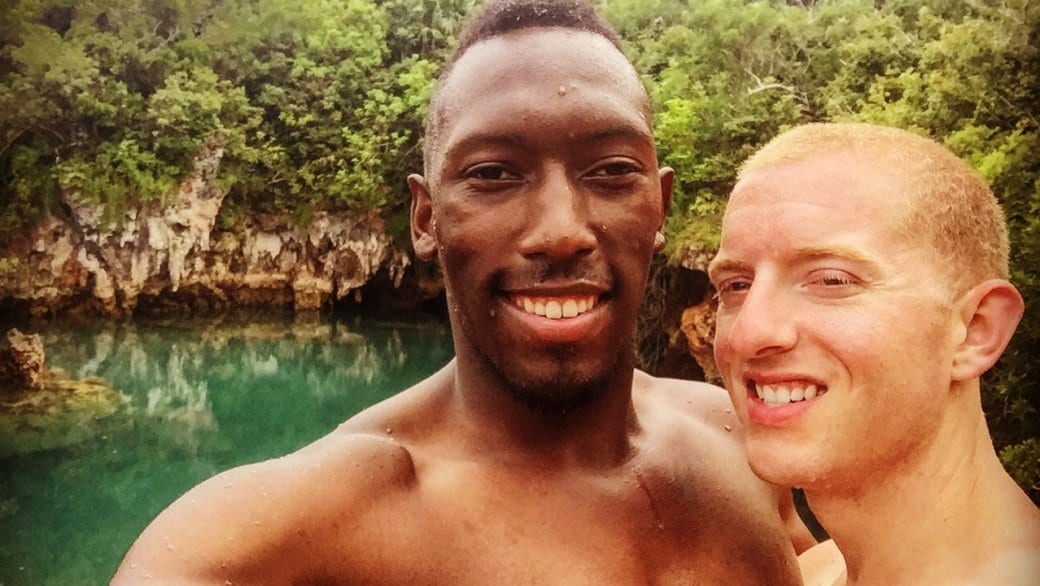Winston Godwin and Greg DeRoche just want to get married. Godwin’s homeland of Bermuda doesn’t recognize same-sex relationships, however, so the couple is taking the government to court from 1,800 km away in their current home, Toronto.
Godwin and DeRoche, who live together and have been dating for a year and a half, decided to get married while skipping rocks together on the beach in Bermuda on June 22, the night before the British territory held a referendum on same-sex marriage or civil unions. By a two-to-one margin, the country rejected both in the non-binding vote.
At the time, LGBT activists pledged to continue the fight for marriage rights through the court system. Godwin spotted an ad looking for couples willing to file a test case against the government for same-sex marriage and, after discussing it with DeRoche, agreed to make a very public bid to be the first same-sex couple to wed on Bermuda.
“It’s exciting. There’s a lot of people who’ve contacted me to say they do support me, who say they’re completely for it — people who don’t even know me,” Godwin says.
The couple filed their request to marry on July 4, assisted by their lawyer Mark Pettingill, who is also a member of parliament in Bermuda’s governing party and a former attorney-general. On July 7, the application was rejected on the grounds that the Matrimonial Causes Act only permits marriage between a man and a woman. The next day, the Bermuda House of Assembly passed an amendment protecting the act from challenges under the Human Rights Act, which bans discrimination on the basis of sexual orientation. On July 14, the Senate rejected the bill by a 6-5 vote, but the Senate can only delay legislation for up to a year.
The couple have vowed to continue to the Supreme Court of Bermuda anyway.
“Obviously we could easily get married here, no problems, no questions asked,” Godwin says. “It’s more about what it means to Bermuda than what it means to us.”
“After the referendum, you want to be able to just continue the fight for it,” he says. “If you look back at the race issues, and race relationships, in terms of those sorts of issues that have plagued Bermuda, it’s a slow country to get the ball moving. Just as much as people were against interracial relationships at one point, it’s the same thing for this.”
DeRoche, 29, says he felt very welcome on his first visit to Bermuda with Godwin last month and wants to celebrate their wedding there with Godwin’s family.
“I want to marry Winston because I have never met another person who is so patient with me and understanding of my needs in life,” he says. “We have both lost our mothers at a young age and understand how that impacts on our lives. We both grew up in smaller communities so I feel our upbringing was similar in terms of being raised not only by our families, but also our communities.”
Godwin, 26, was born in Bermuda but went to school in Canada, where he studied to become an aquarist and now works at Ripley’s Aquarium. He says he could see himself someday returning to Bermuda.
“Eventually I would like to come back and give back to a place that has given so much to me,” he says. “If I can inspire young minds, of course I would like to do it. I just want to do it in a place where I can be comfortable walking hand in hand in the sand with my partner.”


 Why you can trust Xtra
Why you can trust Xtra


